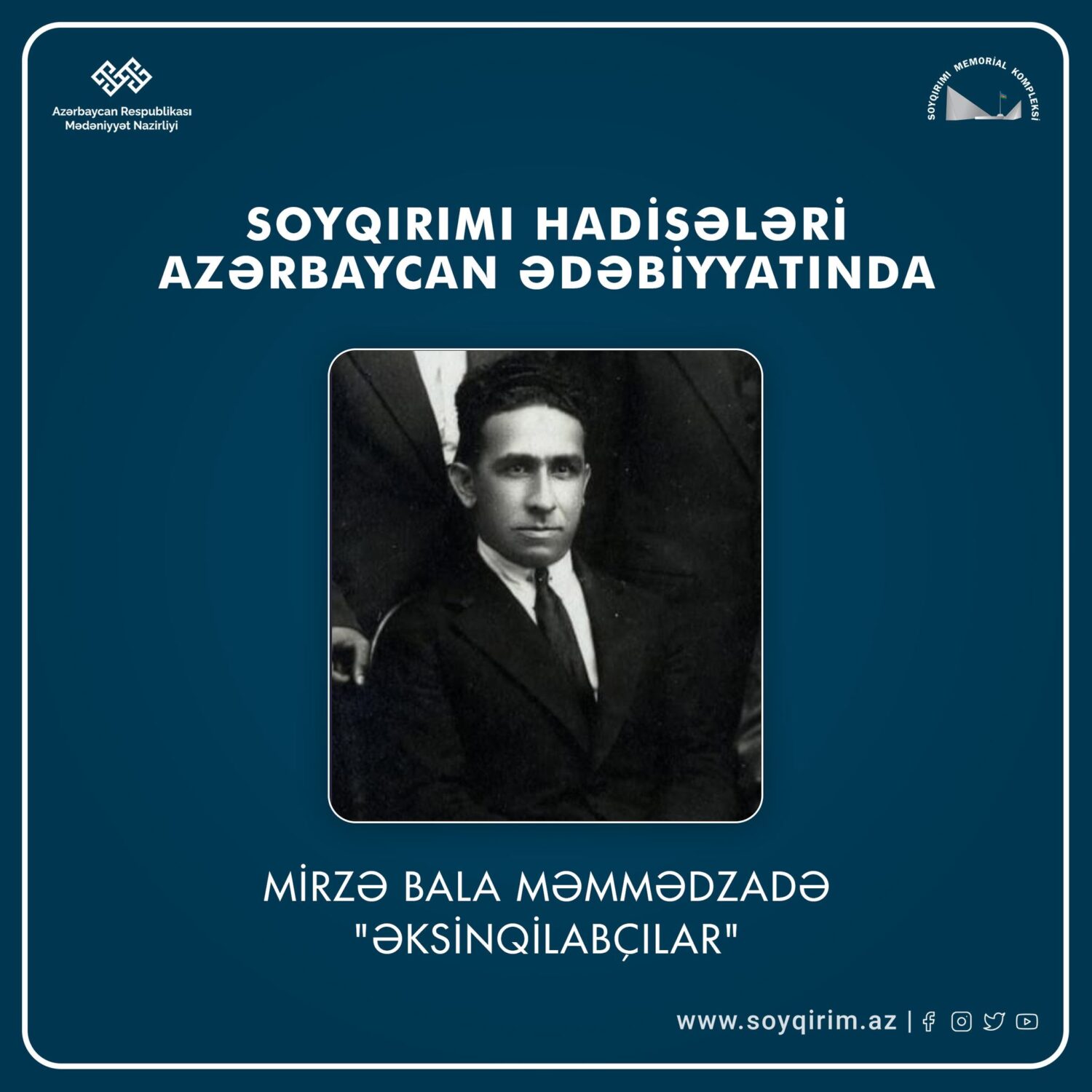Mirza Bala Mahammadzade's story "Counter-revolutionaries"

Mirza Bala Mahammadzade’s story “Counter-revolutionaries” is the first fiction work dedicated to the March 1918 genocide. In this narrative, the writer portrays the tragedy experienced by an Azerbaijani intellectual, Huseyn, who, despite losing relatives and loved ones in the events, still referred to the victims as “counter-revolutionaries” due to his ideological indoctrination by Russia. Huseyn struggled to see and express the truth, failing to fully appreciate the essence of the problem. Through Huseyn’s exaggerated Bolshevik and Armenian Dashnak mindset, Mahammadzade created a vivid character that remains relevant today.
The story includes a poignant description: “The Shamakhi incident did not trouble Huseyn as much as the events in Crimea and Turkestan. According to the information he received from reliable sources, those killed in these Turkish fires were ‘counter-revolutionaries.’ But now, Baku was experiencing tumultuous days. The city was ablaze. The bombardment from steamships, accompanied by the sounds of machine guns, cannons, rifles, and bullets, and the cries of the people, the groans of children, women, and girls, painted a clear picture of horror. The dead, the burning, the running, the screaming, the destruction, the cutting—all mixed together… Women, girls, and the elderly ran barefoot from house to house, corner to corner. What was the reason for this? These were Turkic Muslims, those who yearned for freedom and autonomy. Tired of centuries of slavery, suffering, and humiliation, they desired a more humane existence. For this, they were punished. They were deemed counter-revolutionaries because they refused to submit to Velikorus imperialism. I wonder, does Huseyn see them?”






